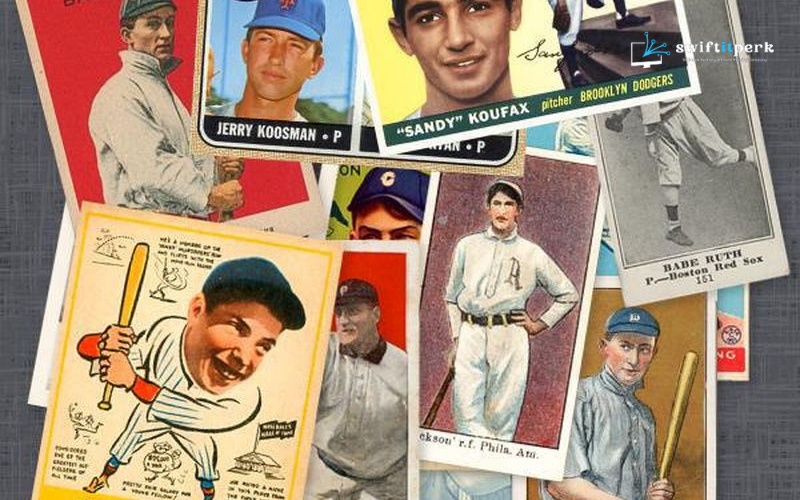Baseball cards have been a beloved collectible for decades, captivating fans and collectors alike with their rich history and timeless appeal. While many baseball cards hold sentimental value, some have the added allure of being worth a substantial amount of money. In this article, we will explore the fascinating world of baseball cards worth money, delving into the factors that determine their value, providing examples of rare and valuable cards, offering tips for identifying and collecting valuable cards, and guiding you on how to properly store, preserve, and sell your baseball cards for maximum profit.
Factors that determine the value of baseball cards
Several factors contribute to the value of a baseball card, and understanding these factors can help you identify cards with the potential for a significant return on investment. The first and most important factor is the player featured on the card. Hall of Famers, legendary players, and those with remarkable achievements tend to command higher prices. The card’s condition is another critical element, with cards in pristine condition often fetching a premium. Additionally, the card’s rarity, age, and historical significance play a role in determining its value. Lastly, demand from collectors and investors greatly influences the market value of baseball cards.
Rare and valuable baseball card examples
There are numerous baseball cards that have become legends in the collecting world due to their rarity and exceptional worth. One such example is the T206 Honus Wagner card, widely considered the holy grail of baseball cards. With only around 60 known to exist, this card is highly sought after by collectors, often commanding prices in the millions. Another notable card is the 1952 Topps Mickey Mantle rookie card, which is highly valued due to Mantle’s iconic status and the card’s scarcity. Other valuable cards include the 1909-1911 T206 Eddie Plank card, the 1914 Baltimore News Babe Ruth rookie card, and the 1916 Sporting News Babe Ruth rookie card. These cards represent a small glimpse into the world of rare and valuable baseball cards.
Tips for identifying and collecting valuable baseball cards
Identifying and collecting valuable baseball cards requires knowledge, research, and a discerning eye. One essential tip is to educate yourself about the different baseball card sets, their years of production, and the key players featured in each set. This knowledge will help you identify valuable cards when you come across them. It is also crucial to inspect the condition of the card meticulously. Look for cards with sharp corners, minimal wear, and vibrant colors. Grading services can provide professional assessments of a card’s condition, which can greatly impact its value. Networking with other collectors, attending card shows, and joining online forums can provide valuable insights and help you stay updated on the latest trends and discoveries in the baseball card collecting community.
How to properly store and preserve baseball cards
Properly storing and preserving your baseball cards is essential to maintain their value and prevent damage over time. The first step is to invest in high-quality card sleeves or holders that provide protection from dust, moisture, and fingerprints. These sleeves should fit the cards snugly to prevent movement. Avoid storing cards in direct sunlight or extreme temperatures, as these conditions can cause fading and warping. Consider using acid-free storage boxes or albums to organize and store your collection. Regularly inspect your cards for any signs of damage and handle them with clean hands to avoid transferring oils or dirt. By taking these precautions, you can ensure that your baseball cards remain in excellent condition for years to come.
How to sell baseball cards for maximum profit
If you decide to sell your valuable baseball cards, it is essential to approach the process strategically to maximize your profit. One option is to sell your cards individually through online marketplaces or auction houses. This method allows you to target specific collectors who are willing to pay a premium for rare cards. Another approach is to sell your collection as a whole, either through consignment services or to private buyers. This method can be more convenient, but it may not yield the highest possible return. Before selling, consider getting your cards professionally graded and authenticated, as this can greatly enhance their marketability and value. Research current market trends, consult with experts, and be patient when selling your cards, as finding the right buyer may take time.
Popular online marketplaces for buying and selling baseball cards
The internet has revolutionized the buying and selling of baseball cards, making it easier than ever to connect with fellow collectors and potential buyers. Several online marketplaces have emerged as popular hubs for trading baseball cards. eBay, with its vast user base, offers a wide range of cards and allows for both auctions and fixed-price listings. Another prominent platform is COMC (Check Out My Cards), which offers an extensive inventory of cards and provides a consignment service for sellers. Other notable marketplaces include Beckett Marketplace, Sportlots, and Heritage Auctions. When using online marketplaces, be sure to research the seller’s reputation, carefully examine listing details and photographs, and communicate with potential buyers or sellers to ensure a smooth and secure transaction.
Resources for appraising baseball card values
Appraising the value of your baseball cards is crucial when determining their worth and potential selling price. Fortunately, there are various resources available to assist you in this process. Online price guides, such as Beckett.com and PSAcard.com, provide comprehensive databases of card values, allowing you to search for specific cards and verify their market worth. Auction house catalogs and realized auction prices can also serve as valuable references for determining the value of similar cards. Additionally, professional card grading and authentication services, such as PSA (Professional Sports Authenticator) and BGS (Beckett Grading Services), can provide expert opinions and assign a grade to your cards, which greatly influences their value. By utilizing these resources, you can make informed decisions regarding your valuable baseball cards.
Notable stories of valuable baseball card discoveries
The world of baseball card collecting is rife with stories of incredible finds and unexpected treasures. One remarkable tale involves a family who discovered a collection of over 700 rare T206 baseball cards in their great-grandparents’ attic. These cards, including the coveted Honus Wagner card, were in remarkable condition and collectively valued at over $3 million. Another notable story revolves around a man who stumbled upon an unopened case of 1948 Bowman baseball cards while cleaning out his late uncle’s garage. This discovery led to the unearthing of pristine rookie cards of Hall of Famers Stan Musial and Yogi Berra, among others, resulting in a windfall of over $500,000. These stories serve as a testament to the enduring allure and potential value of baseball cards.
Conclusion: The enduring value of baseball cards
Baseball cards have transcended their humble origins as mere collectibles, becoming treasured artifacts that embody the history and spirit of America’s favorite pastime. While not every baseball card holds significant monetary value, there is a world of cards worth money waiting to be discovered by passionate collectors. By understanding the factors that determine card value, identifying rare and valuable examples, following best practices for collecting and preserving cards, and utilizing resources for appraising and selling, you can embark on a rewarding journey into the world of baseball cards worth money. So start exploring, keep your eyes open, and who knows, you might just stumble upon a baseball card treasure of your own.




